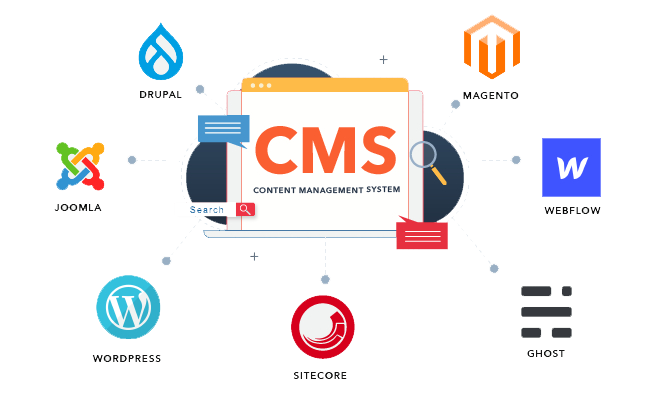
Web Development for SEO
In the digital age, having a good online presence is crucial for both individuals and businesses. But just having a website is not enough. If you want to succeed online, you must make sure that search engines can easily find your website. In this case, search engine optimization (SEO) is helpful. In this blog post, we’ll examine how web development can be optimized for SEO to improve your website’s ranking in search engine results pages (SERPs) and boost organic traffic.
Any website that is optimized for search engines starts with the choice of a CMS. The content management systems for WordPress, Drupal, and Joomla all include built-in SEO tools and plugins that simplify optimization tasks. Because they make managing content, meta tags, and URLs straightforward, it’s crucial for web developers to choose one that follows SEO best practices.


Google and other search engines give favor to websites that are mobile-friendly. Make sure your website can adapt to various screen sizes and mobile devices, or it won’t be responsive. Google prioritizes crawling and indexing your site’s mobile version as part of its “mobile-first” indexing strategy. The use of a responsive design is crucial for higher SEO rankings.
A website’s slow loading time may negatively impact both the user experience and SEO rankings. Utilize tools like Google PageSpeed Insights to assess and enhance the speed at which your website loads. Use browser cache, minify CSS and JavaScript, and reduce the size of images to speed up loading.


Keyword research is the cornerstone of SEO. Pick relevant keywords and judiciously incorporate them into your website’s content, meta descriptions, and headers. However, avoid stuffing your content with keywords; it should flow naturally. Additionally, be sure you include heading tags, alt attributes, and SEO-friendly URLs.
Content is king in SEO. Create material that is of the greatest caliber, informative, and entertaining for your audience. To encourage repeat visits and demonstrate to search engines that your site is current and relevant, regularly update your website with new content.


If your business has a physical location, your website should be locally SEO optimized. Create a Google My Business listing, include your address on your website, and collect positive reviews. This increases local traffic to your website by enhancing its presence in local search results.
Security is essential for SEO and user trust. Installing an SSL certificate will enable HTTPS on your website and ensure its security. Users are more likely to believe a website that displays the padlock icon in their browser since Google supports safe websites.


Use schema markup to give search engines structured information about your content. You may enhance the look and value of your website in search results by adding rich snippets to your search listings.
It is possible to reduce image file sizes without sacrificing quality. Be detailed in the alt tags and image file names. When properly constructed, videos and infographics can boost SEO and improve user attention.


SEO is a continuous process. Check the efficiency of your website periodically by using tools like Google Analytics and Google Search Console. To maintain and improve your rankings, keep up with market trends and algorithm updates and be prepared to make adjustments as necessary.
Web development and SEO go hand in hand. By using SEO-recommended practices while your website is still being built, you may create the framework for better search engine rankings and more organic visitors. Remember that SEO is a never-ending process, and staying up to date with the most recent techniques and trends is essential for lasting success in the online sphere. Investment in website optimization will boost visibility, user engagement, and eventually financial success for your website.

